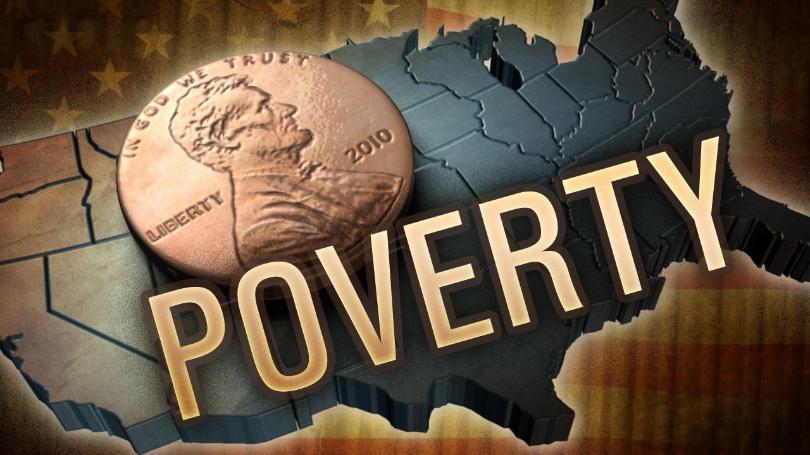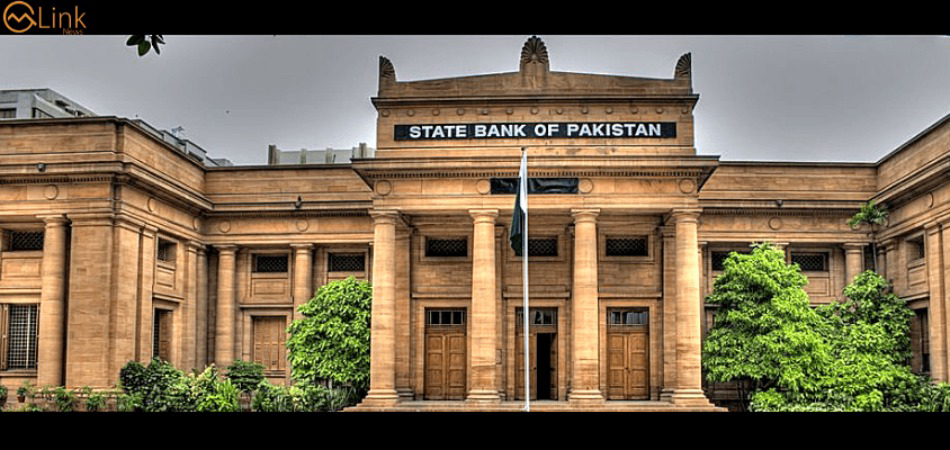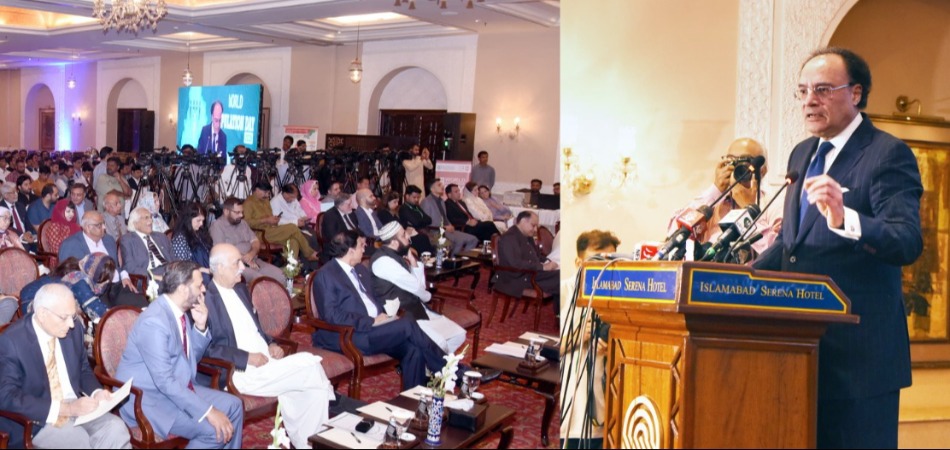39% of Pakistanis live in Poverty: World Bank warns of economic crisis

MG News | September 25, 2023 at 01:32 PM GMT+05:00
September 25, 2023 (MLN): Pakistan's poverty rate in 2023 is estimated to be around 39% due to low economic growth, further compounded by several recent shocks, including the COVID-19 pandemic, the 2022 floods, and high food inflation, which have hindered progress in poverty reduction, the World Bank (WB) highlighted on Friday.
The WB launched a new program on Friday titled “‘Reforms for a Brighter Future: Time to Decide” aimed at fostering a productive debate on the critical development policy issues being faced by Pakistan.
It expressed deep concern over Pakistan's economic state, calling for immediate action to address the country's financial woes.
The international lender has urged Pakistan to take bold steps, including taxing traditionally untouched sectors like agriculture and real estate, while also making significant cuts in public expenditures.
These measures are seen as essential for achieving economic stability and a fiscal adjustment of over 7% of the country's GDP.
The program is intended to engage in discussions with a broad range of stakeholders that what ‘fundamental policy shifts’ are most needed to durably steer the economy towards stronger, more climate-resilient, and sustainable growth and development.
It presents critical policy shifts required to move beyond the current low equilibrium towards sustainable and inclusive economic development, and poverty reduction.
This consultation program includes the publication of a series of draft discussion notes that would be progressively enriched by feedback received from the stakeholders.
The Notes, which draw on international experience as well as a large body of evidence on Pakistan, propose fundamental policy shifts that are needed to move away from the current low-growth, anti-development status quo.
In the draft notes, the WB suggested a policy shift “From underfunded, inefficient, and fragmented service delivery and social protection systems towards coordinated, efficient and adequately financed service delivery, targeting the most vulnerable, particularly to reduce abnormally high child stunting rates and increase learning outcomes for all children, especially for girls.” as APP reported.
Besides it asked for moving “From wasteful and rigid public expenditures benefiting a few, towards tightly prioritized spending on public services, infrastructure, and investments in climate adaptation, benefiting populations most in need.
The international lender emphasized switching over to a system that is broad-based, efficient, progressive, and equitable—generating sufficient revenues to significantly increase public investment in human development, infrastructure, and climate adaptation from a narrow, distortive, and inequitable tax system.
The WB also proposed a policy shift “From a protected, stagnant, and unproductive economy with a large state presence towards a dynamic open economy driven by private investment and exports.”
It suggested shunning such agriculture sector policies that locked farmers into low-value, low-productivity farming; and adopting a more market-driven, productive agricultural system, including value chains that were resilient to climate change impacts and water scarcity.
The WB asked for shifting “From energy sector policies that drive high energy costs, environmental harms, and unsustainable accumulation of debt, towards efficient, sustainable, and resilient generation and distribution, based on accurate price signals, increased competition, and private participation, and a cleaner energy mix.”
Besides, it proposed a policy shift “From a public sector that is inefficient, often ineffective, and vulnerable to capture by vested interests towards accountable, efficient, and transparent government, including at the local level."
Speaking on the occasion, WB Country Director to Pakistan Najy Benhassine said Pakistan had been facing numerous economic hardships including inflation, rising electricity prices, severe climate shocks, and insufficient public resources to finance development and climate adaptation, especially when it was among the most vulnerable to climate change impacts.
“It is also facing a ‘silent’ human capital crisis: abnormally high child stunting rates, low learning outcomes, and high child mortality,” he observed.
Najy Benhassine said the discussion notes contributed to debates on long-standing policy issues that were muting Pakistan’s high economic and development potential.
“There is reasonable consensus on priorities and challenges. Determining specific solutions requires open debates on concrete, fundamental policy decisions. We hope this program of discussions will help build a consensus around a path towards inclusive, sustainable, and climate-resilient development,” the WB Country Director added.
As part of the ‘Reforms for a Brighter Future’ engagement program, the World Bank together with the Pakistan Institute of Development Economics, conducted extensive consultations across the country to seek inputs and feedback on the recommendations included in the draft Discussion Notes.
These included discussions with students across 21 universities and provincial roundtables with thinkers from academia, and the public and private sectors.
Participants in all four provinces have shared insights and perspectives that have helped shape the understanding of what it would take to put Pakistan back on a path toward sustainable, climate-resilient, and inclusive growth.
The ‘Reforms for a Brighter Future’ program will continue over the following months both online and at in-person events across the country.
Copyright Mettis Link News
Related News
| Name | Price/Vol | %Chg/NChg |
|---|---|---|
| KSE100 | 134,299.77 290.06M |
0.39% 517.42 |
| ALLSHR | 84,018.16 764.12M |
0.48% 402.35 |
| KSE30 | 40,814.29 132.59M |
0.33% 132.52 |
| KMI30 | 192,589.16 116.24M |
0.49% 948.28 |
| KMIALLSHR | 56,072.25 387.69M |
0.32% 180.74 |
| BKTi | 36,971.75 19.46M |
-0.05% -16.94 |
| OGTi | 28,240.28 6.19M |
0.21% 58.78 |
| Symbol | Bid/Ask | High/Low |
|---|
| Name | Last | High/Low | Chg/%Chg |
|---|---|---|---|
| BITCOIN FUTURES | 118,140.00 | 119,450.00 115,635.00 |
4270.00 3.75% |
| BRENT CRUDE | 70.63 | 70.71 68.55 |
1.99 2.90% |
| RICHARDS BAY COAL MONTHLY | 97.50 | 0.00 0.00 |
1.10 1.14% |
| ROTTERDAM COAL MONTHLY | 108.75 | 108.75 108.75 |
0.40 0.37% |
| USD RBD PALM OLEIN | 998.50 | 998.50 998.50 |
0.00 0.00% |
| CRUDE OIL - WTI | 68.75 | 68.77 66.50 |
2.18 3.27% |
| SUGAR #11 WORLD | 16.56 | 16.60 16.20 |
0.30 1.85% |
Chart of the Day
Latest News
Top 5 things to watch in this week
Pakistan Stock Movers
| Name | Last | Chg/%Chg |
|---|
| Name | Last | Chg/%Chg |
|---|




 MTB Auction
MTB Auction